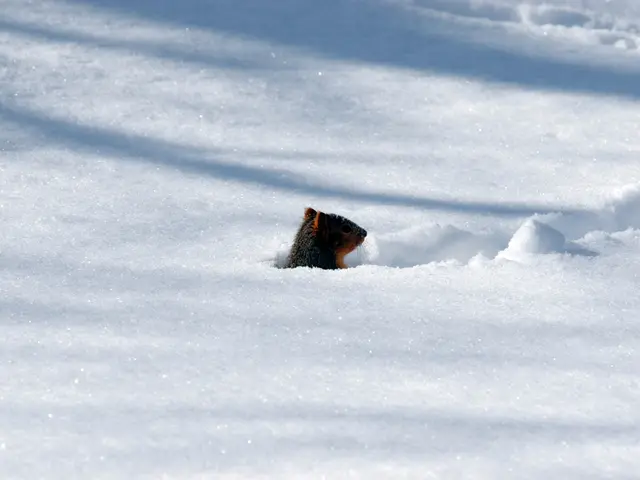Scientists in Britain Assert Alien Existence Evidence Discovery
Scientists in the UK, led by Professor Milton Wainwright from the University of Sheffield's Molecular Biology and Biotechnology department, have claimed to have discovered potential evidence of extraterrestrial life. This finding comes after the collection of unusual biological entities from a balloon sent to the edge of space from Wakefield, West Yorkshire.
Alleged Extraterrestrial Organisms Discovered in Wakefield
A balloon, initially intended to monitor the Perseid meteor shower, returned with peculiar life forms, including a diatom fragment and strange biological entities. These findings, if substantiated, might mark Wakefield as the site of the first documented alien invasion on Earth.
Professor Wainwright expressed a high degree of confidence that these organisms did not originate from Earth. He argued that given our current scientific knowledge, these life forms must have come from space, as there is no recognized mechanism on Earth capable of propelling them to such heights.
Initial preliminary analyses suggest that some of the samples were found covered in cosmic dust, further supporting the extraterrestrial origin theory. Professor Wainwright commented that "these organisms aren't frequent on Earth; if they originated from here, we'd expect to find common terrestrial elements like pollen."
Origins Traced to Comets and Building Blocks of Life
The team speculates that these entities may originate from comets, which release organisms as they disintegrate (ablate) in Earth's atmosphere during meteor showers. The samples were collected during a meteor shower linked to a comet. According to Wainwright, "The particles are remarkably clean... Dust isn't adhered to them, which leads us to believe they originated from an aquatic environment, with comets being the most likely source in space."
The hypothesis that these organisms might contain DNA strengthens the idea that life on Earth might have extraterrestrial origins. Professor Wainwright asserted, "If our hypothesis is correct, it implies life exists in space and is coming to Earth. It suggests that the origin of life on Earth may have cosmic roots."
Contamination and Future Research
The team plans to conduct additional experiments during the next meteor shower associated with Halley's Comet to confirm their findings and discover new or unusual organisms. "The anticipation will be nearly unbearable," Wainwright said.
Publication and Peer Review
The group's findings have been published in the Journal of Cosmology, with updated versions scheduled for the same journal. Wainwright revealed plans to conduct isotope fractionation to further validate their findings, stating, "If the ratio of certain isotopes gives one number then our organisms are terrestrial, if it gives another, then they are extraterrestrial."
Addressing concerns about contamination from space debris or objects previously lofted into space, the presence of any alien organisms in the discovered samples would be highly unlikely if they originated from post-aseismic volcanic eruptions or space debris. The governments of Britain, Japan, and Australia have expressed worry over China's apparent testing of an anti-satellite missile, but the debris resulting from that event would not have reached the stratosphere where the samples were collected.
Additional research is needed to confirm the extraterrestrial origin of the discovered organisms beyond reasonable doubt, but the findings have ignited the scientific community's excitement about the search for life beyond our planet.
The organisms discovered in the Wakefield sampling, initially collected during a space-and-astronomy event and monitored by the Molecular Biology and Biotechnology department at the University of Sheffield, are posited to have biotech origins, potentially originating from space-and-astronomy phenomena such as comets, according to Professor Milton Wainwright. This finding could revolutionize health-and-wellness studies by strengthening the theory that life on Earth might have extraterrestrial origins and cosmic roots.








